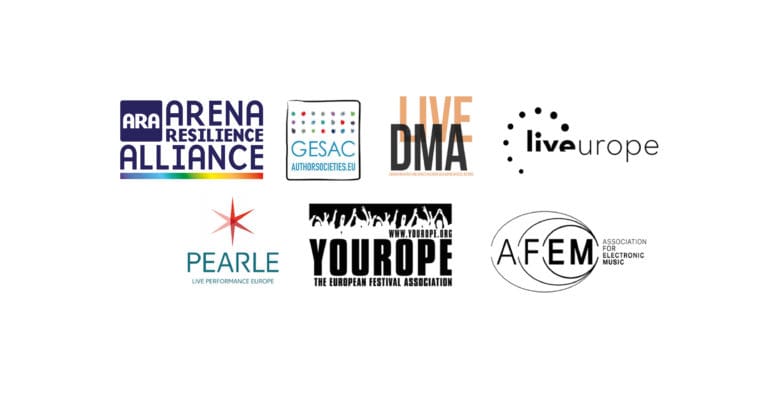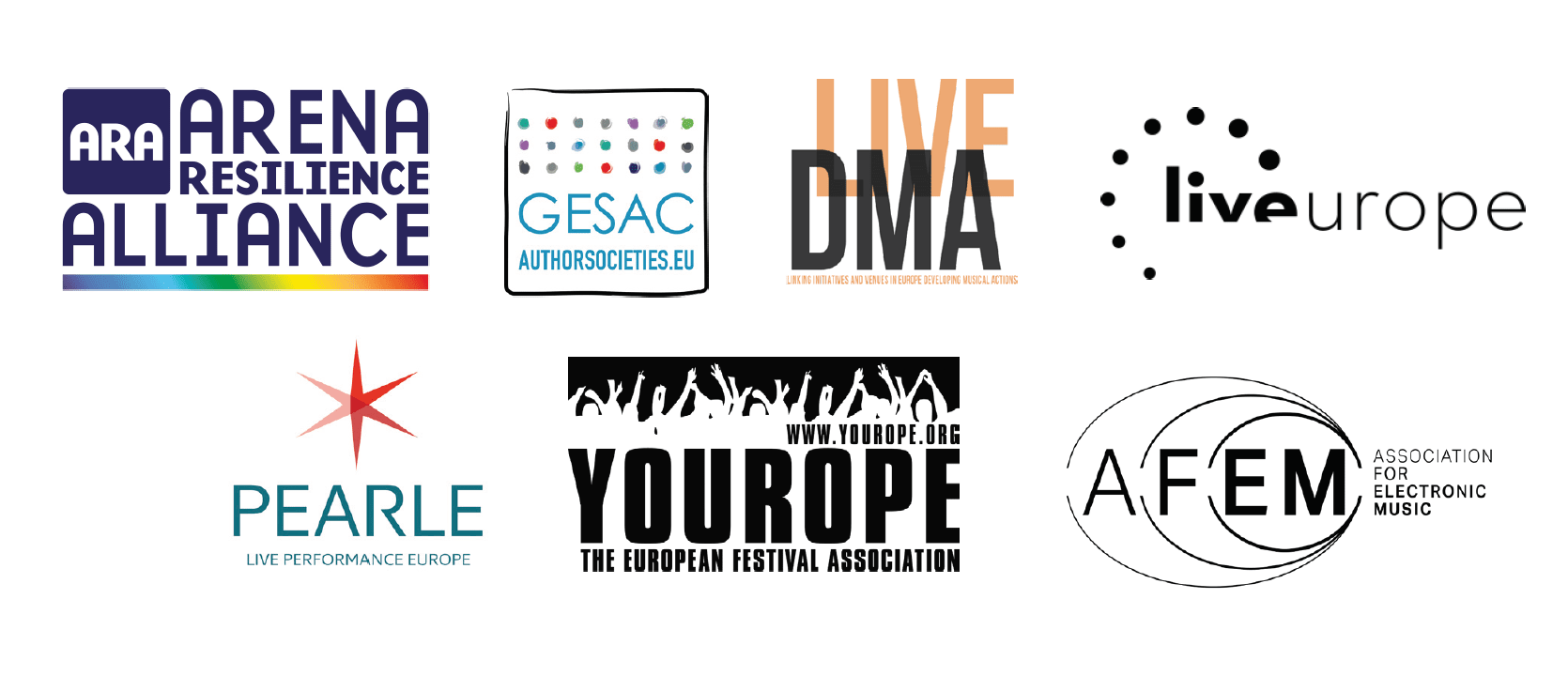GESAC unites with live event sector in letter to Commissioner Breton
GESAC has cosigned a letter with six live event organisations, urging the European Commission to take the lead in coordinating the reopening of Europe’s cultural venues and the relaunching of cultural life.
The letter, which can be read in full below, follows an official communication from the European Commission yesterday, which stated that the Commission will develop reopening guidelines for the safe resumption of activities at festivals, theatres and other cultural spaces.
GESAC welcomes this initiative, but is urging the Commission to expedite this process, in order that creators and the creative industries ahead of the all important summer season.


Commissioner Thierry Breton
Internal Market
European Commission
This letter is a follow-up to the constructive discussions you had with the delegation from the cultural and creative industries on 26 January, out of which we are greatly appreciative of your offer to take the lead in forming a clear vision and coordinated strategy for cultural venues and events.
In this respect, we have been very encouraged by the recent Communication on “a common path to safe and sustained re-opening”. We would like to express our gratitude for this extremely positive initiative and our readiness to start work immediately on this objective.
Indeed, the vast majority of EU countries have seen no change to their current situation over the last months; lockdowns, curfews, the closure of all cultural, social and sport venues, if not severe restrictions to their usage.
With each passing week we are all becoming more acutely aware of the psychological impact of the situation. Not only are Europeans suffering economically, the mental effects of social isolation are taking their toll and eroding any preliminary optimism brought on by the deployment of vaccines.
Though we are still enveloped in this crisis, Europe’s cultural industries know the current situation will not last forever. It is therefore imperative that we adapt and put in place suitable planning measures to prepare for our new normal.
In this sense, we have taken the initiative. We and our partners have been working with national governments and local municipalities to find financial solutions for both creators and organisers. Our work has been based on studies about the viability of events, and test events that have been held at various venues across Europe.
In isolated cases where events have been held, organisers are holding them at 30% capacity or less, knowing they will barely recover their costs, in the name of keeping the cultural scene going and offering some semblance of hope to performers and the general public. But these solutions are not sustainable without political leadership and a clear vision to take coordinated steps at the European level.
Europeans are eager to watch films in the cinema again, to return to theatres, museums, sports venues, and to enjoy long nights watching their favourite bands on stage. With the summer season edging ever closer, organisers, performers, authors, and production staff are anxious about what, for their careers, is the most important period of the year.
However, what we have seen is a great discrepancy throughout Europe. While some countries are taking timid steps to prepare for the new normal, others have neither the means nor desire to look beyond the health and economic crisis, failing to see culture’s connection to the two. Artists, sports people, and fans do not know if they will need a COVID passport to travel to or enter events, organisers are unsure which precautions may, if at all, be endorsed by authorities, and the lack of cross-border collaboration means Europe’s previously fluid cultural exchanges cannot yet be envisaged.
Many venues are in need of direct assistance to avoid permanent closure. The scale of their activities often means planning and booking events many months, if not years in advance. This general lack of confidence is a key determinant in scaring away organisers, investors and the public.
For event organisers and venues, holding events at full capacity is an operation that may require up to three to nine months of planning. In the absence of a coordinated EU-level reopening scheme, including the mobility of artists and touring companies, these costly and logistically burdensome activities are unlikely to come back to European venues soon.
As mentioned in your meeting with the creative industry delegation, arts and culture should be used as a tool to renew public enthusiasm for a brighter tomorrow and contribute to the rebuilding of the European economy.
Only one other industry—air transport—has been hit as hard by this crisis as culture. No other industry has innovated so urgently to reproduce the live experience online. But this effort has not brought with it adequate economic or psychological compensation. Streamed events will not replace the live experience.
Digital has not saved culture, but now is the time to start planning for how culture can play its part in saving Europe. There is no satisfactory recovery that does not include access to events where Europeans can embrace one another and revel in the euphoria of a shared cultural experience, under the necessary precautions of our new normality.
We, the undersigned signatories of this letter, represent a wealth of first-hand knowledge. Between us we have either released hundreds of millions of euros in emergency funds to keep authors, performers and sports event organisations afloat during these difficult times, or advocated for national governments to release funds to protect our sectors. We have taken part in task forces, drafting health and safety coordination plans for staff and audiences, tabling proposals to our relevant ministries. We have adapted our business practices and innovated modern solutions.
Together, we are asking for a coordinated post-lockdown strategy for Europe’s cultural venues and events. We call on you to take the lead in this undertaking that will undoubtedly require the involvement of multiple ministries (culture, sports, health, economy, industry etc.) and the support of other EU Commissioners. As noted in the Communication “each step towards re-opening will be more effective and more convincing if taken as part of an EU-wide approach” and, we believe, also, if built on the scientific evidence and concrete proposals that have already been developed since last summer.
We have also put our signatures forward in another letter sent today to all EU Commissioners, Presidents of the European Parliament and Council, and member state authorities, which was signed by a broad array of organisations from across the cultural and creative industries and urges decision-makers to ensure culture is included within national recovery strategies and cultural life is reactivated.
We are ready to offer our expertise and experience to the European Commission’s efforts towards helping Europe adapt to the new normal and to develop guidelines for the safe resumption of activities, as projected in the recent Communication. This will allow us to unleash together what President Sassoli, writing in the EY study presented to you in January, called art’s ‘cathartic power that can accompany a post-pandemic society on the road to resilience’.
Yours sincerely,
AFEM – Association for Electronic Music
EAA – The European Arenas Association
GESAC – The European Grouping of Societies of Authors and Composers
LIVE DMA – European Network for Live Music Associations
Liveurope – The live music platform for new European talent
PEARLE – Live Performance Europe
YOUROPE – The European Festival Association